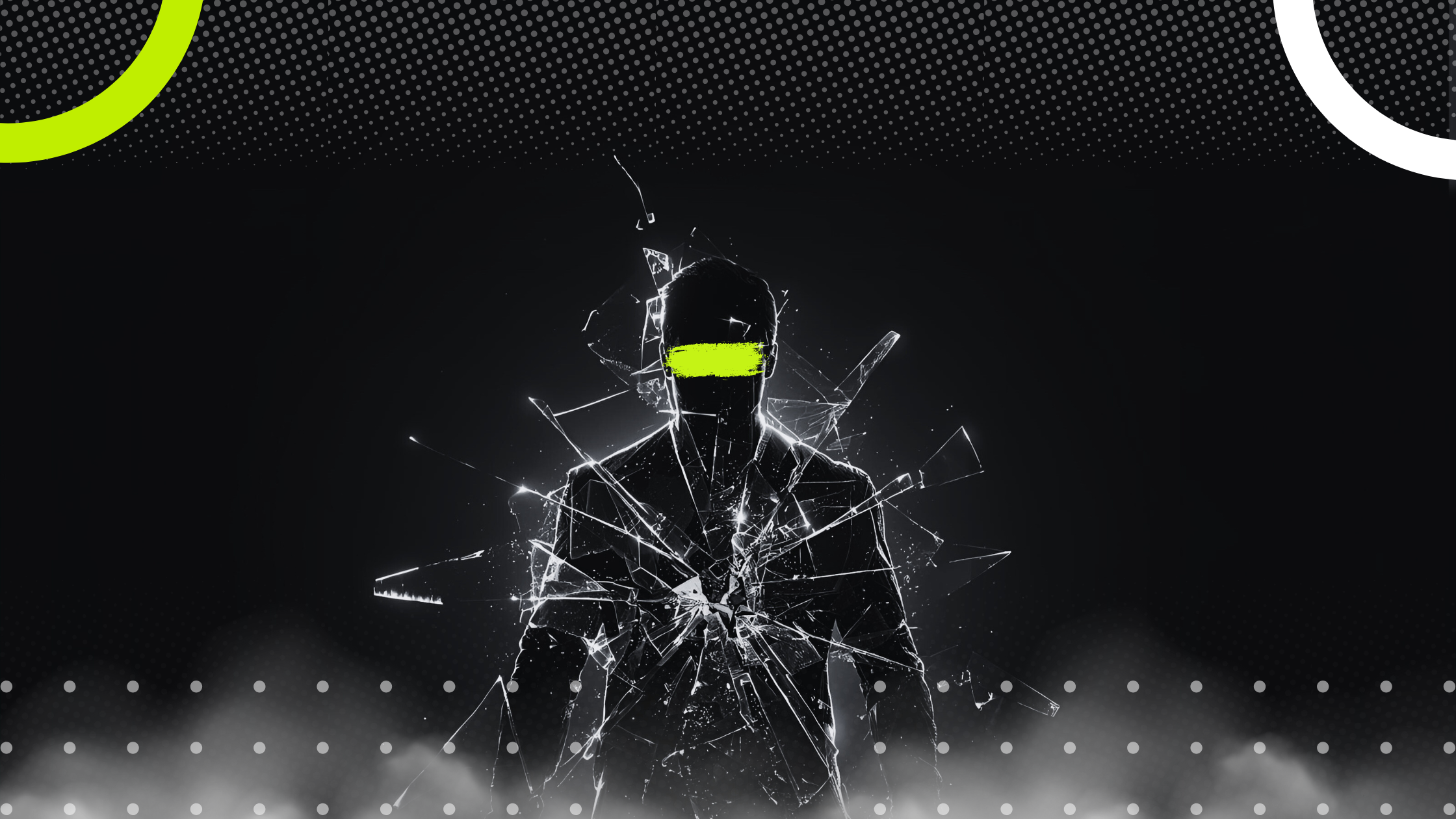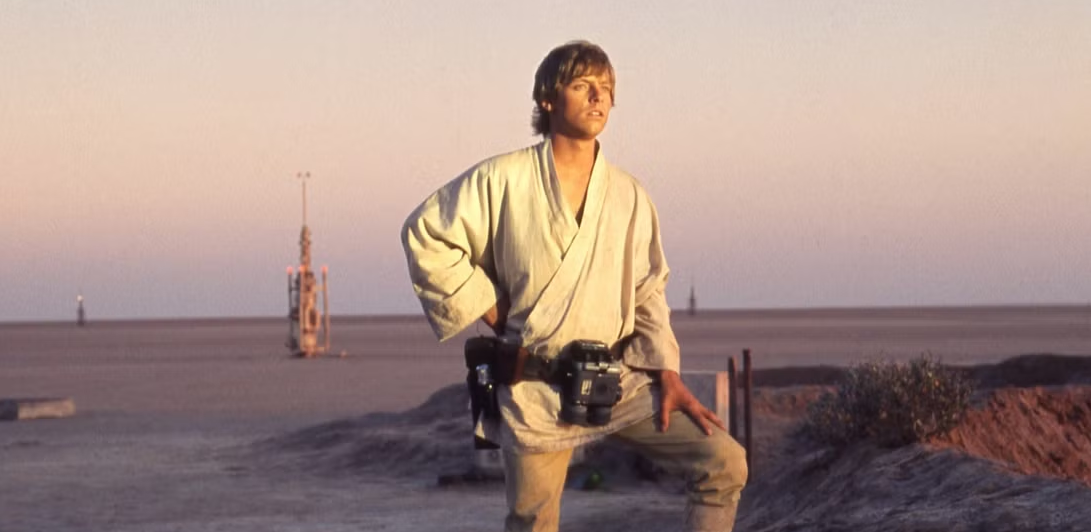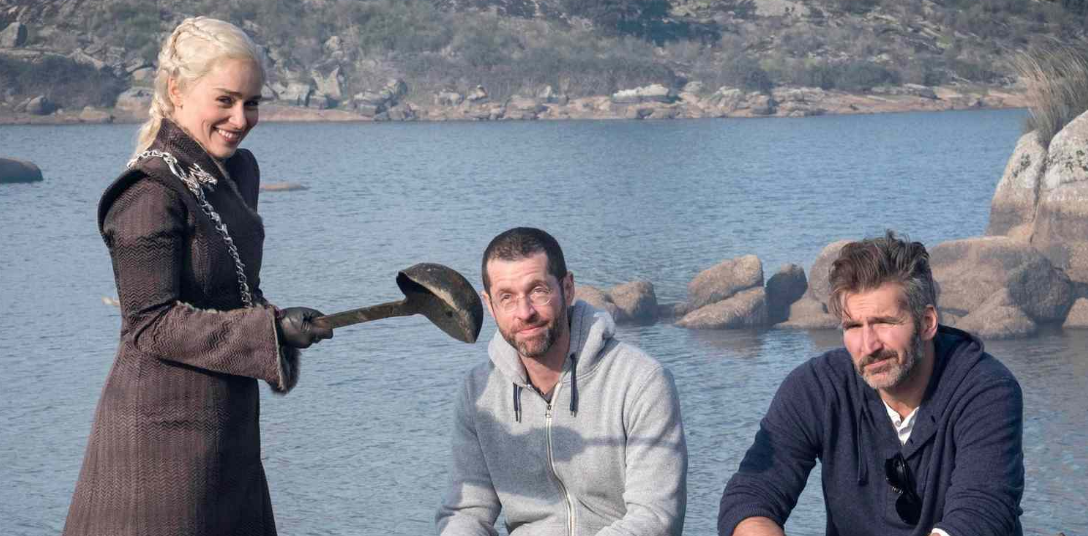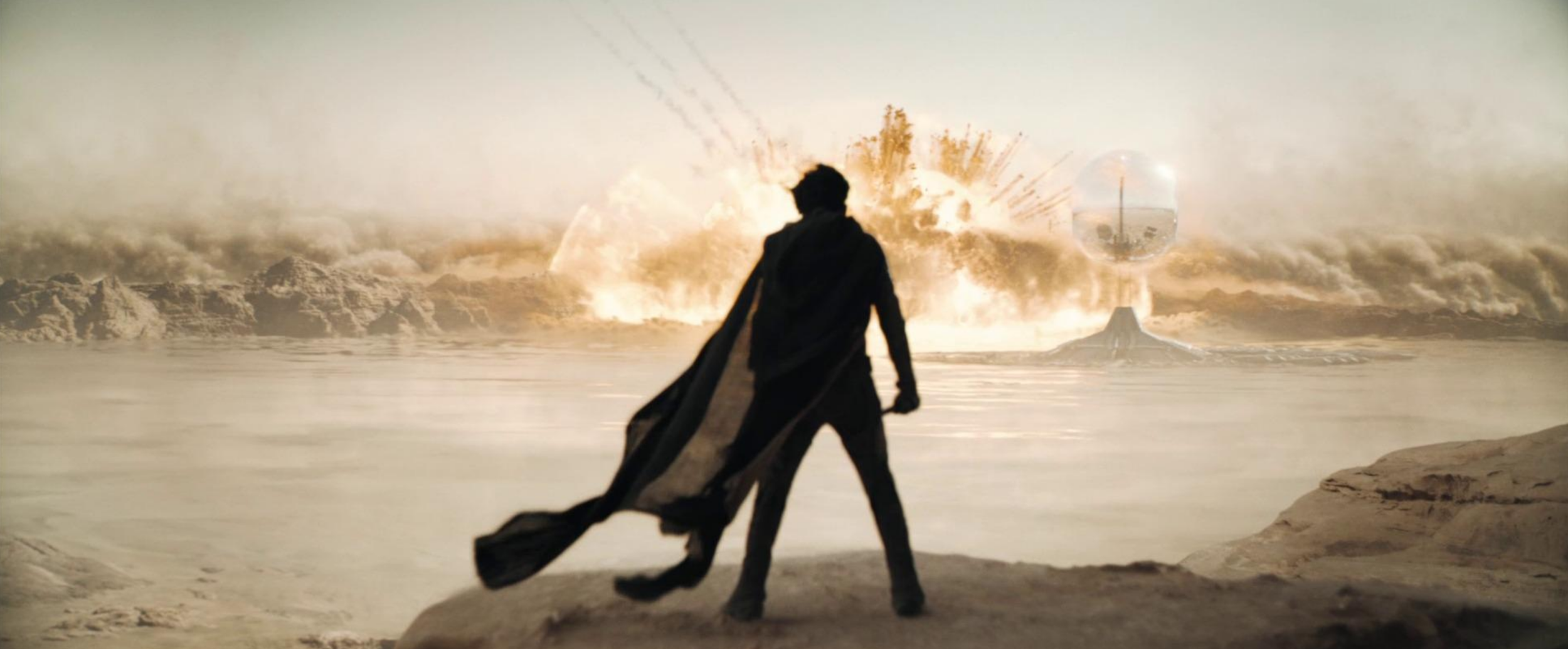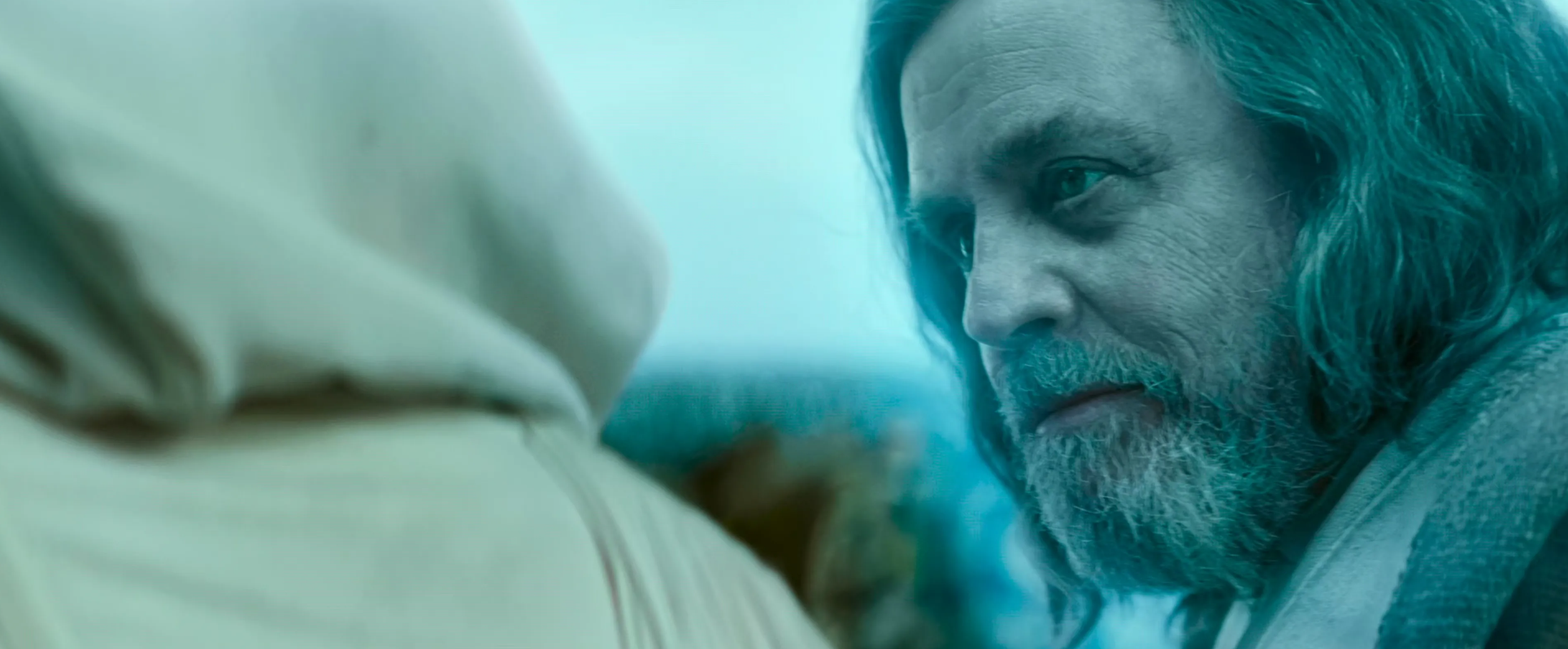The Myth of Character Assasination
WHAT IS CHARACTER ASSASSINATION?
Whether you’re writing screenplays, studying them, or just love movies, you’ve probably encountered the term character assassination. Unlike in real life, where this refers to a deliberate smear campaign to ruin someone’s reputation, in fiction we use it when a character’s established traits are suddenly undermined, leaving audiences feeling frustrated or even betrayed.
Imagine your character starts out flawed and cowardly, then gradually transforms into a hero who conquers their fears. I would expect to see that bravery carry into the sequel – and when I find out they’ve regressed, maybe even blocking others from finding courage themselves, I might accuse you, the writer, of effectively assassinating them by undoing hard-won growth.
EXAMPLES OF CHARACTER ASSASSINATION?
Who and what constitutes assassination will vary depending on who you ask, but Luke Skywalker is the name that comes up most often referenced in discussions and online circles.
For many who grew up with the original trilogy (1977–1983), Luke Skywalker was more than a protagonist; he was a beloved role model and a symbol of hope. We first meet him as a restless farm boy on a desolate planet, who becomes a Jedi while wrestling with fear and temptation. By the trilogy’s end, he redeems his father through compassion, proving that mercy can triumph over anger and hatred.
So when audiences saw The Last Jedi (2017), they were horrified to find Luke in retreat – once again isolated on a remote planet, cut off from the Force, and nearly undone by visions of his nephew’s (Ben Solo / Kylo Ren) potential descent into darkness. This ain’t your Daddy’s Luke Skywalker. This felt like the writers spat in the face of nearly fifty years of attachment!
Maybe you’re one of the few weirdos who haven’t seen Star Wars. Let’s look at Game of Thrones instead. Many feel Daenerys Targaryen’s character was assassinated because her turn to tyranny felt abrupt, inconsistent with both her foundation and ongoing trajectory.
For most of the series, she’s depicted as a liberator – fighting to free slaves, topple oppressive systems, and inspire loyalty through empathy rather than fear. Her ambition, temper, and ruthlessness were always present, but they were balanced by a moral compass and belief in justice. Fans were aghast when she uncharacteristically burns King’s Landing in the final season, killing countless civilians. For many, it didn’t feel conducive with her character but a jarring twist meant to shock, undermining years of careful character-building.
Finally, take Sheriff Jim Hopper from Stranger Things. Some viewers cried ‘assassination’ when, in later seasons, he shifted from a compassionate protector to a volatile, abrasive figure. His growing aggression, jealousy, and controlling behavior toward Eleven and Joyce felt at odds with the caring, measured man we met early on, leaving some fans feeling betrayed.
Across these examples, the characters don’t just regress – they veer off unpredictably, confusing audiences, undermining their established arcs, and, in a sense, betraying themselves.
WHO IS DOING THE ASSASSINATING?
Assassination happens when the audience understands a core truth integral to a character, only for writers to remove, invert, or ignore it. Contrary to the strict definition, most of the time it’s not deliberate. Writers aren’t usually sitting around thinking – Fans love this character – let’s ruin them! More often, it stems from studio interference, a straightforward misreading of the character, or a push to shake things up without respecting or understanding the character’s natural arc. When handling a beloved legacy figure with decades of history, it’s easy to understand the impulse: you want to elaborate and leave your mark on the mythology.
This is exactly what happened with Luke Skywalker, whose established character was undermined by Rian Johnson’s focus on ‘inverting expectations’ and avoiding what he calls ‘pandering to fans.’
For Daenerys, HBO’s push to wrap the series quickly clashed with the writers’ plans, leading to a stunted final season and a hasty finale. With so much to cover, there was little room for a truly cathartic conclusion.
And this is just a theory – but Sheriff Hopper’s arc felt complete by the end of season 1 and then fully resolved again by season 2’s finale. In later seasons, the Duffer Brothers didn’t have enough meat on the bone to continue exploring his character in interesting ways, so they utilized him as a mildly antagonistic foil to challenge characters with more growing still to do, like Eleven and Joyce.
CHARACTER ASSASSINATION VS FLANDERIZATION
It would also be pertinent to briefly distinguish character assassination from ‘Flanderization’, a mistake I see frequently. Flanderization occurs when a complex character is boiled down to just their most recognizable, exaggerated traits. The term stems from Ned Flanders on The Simpsons, who went from a well-meaning (if overbearing) Christian neighbor to a caricatured religious zealot.
One trait becomes their whole identity, reducing complexity until they’ve become dumbed down significantly. It can be disheartening, but it’s not character assassination. TVTropes defines Flanderization as happening “because character development is far less important than the rule of funny.” Take Joey from F.R.I.E.N.D.S. – he’s not as bumbling in the early seasons as he becomes later, but he’s never deliberately written to contradict his original character. Thus, this isn’t assassination, but Flanderization!
WHY DOES IT MATTER?
As a writer and fan of long-form entertainment – cinematic universes, novel sagas, TV series – it’s a privilege to really dive into characters in ways that standalone features can’t offer. We grow with them, reflect on them, and treat them almost like real people – heroes, villains, or somewhere in between. I am writing this article to advise people on how to avoid ‘assassinating’ their own characters, or for fans wondering if poor writing has just assassinated their favorite characters.
But I haven’t been entirely truthful. To address the elephant in the room – and the title of this article – the definitions I have provided are real, but I have to admit, I believe character assassination is a complete…
MYTH?
Character assassination isn’t real, you just don’t agree with writing decisions.
Star Wars, Game of Thrones, Stranger Things. What do all these examples share? Time. Whether it’s sequels after years of absence or long-running TV series, character assassination only happens when enough time has passed for audiences to form expectations. Within a single story, a character acting against their setup is just poor writing. It only becomes assassination when they return in sequels, future installments, or expanded media. Why is that?
Think about it this way: can a character truly transform in a ninety-minute film? Do you buy that Luke goes from whining farmboy to galaxy-saving rebel pilot in less than a week? Or that Ripley evolves from a by-the-book officer to a resilient Xenomorph-killing heroine in just a few days? Of course you do. The writing carefully guides you, broadcasting intent, trajectory, and catharsis every step of the way.
But what about over longer periods? Do you accept that, over a decade, Michael Corleone goes from war hero who wants nothing to do with the family business to ruthless head of his father’s crime empire? Or that Noodles transforms from an ambitious street urchin to a weary, jaded man? I don’t see any issue here, because time skips are instantaneous. We aren’t waiting for months and years like the characters are.
If the gap between Dune and Dune: Part Two were twenty years instead of three, would Paul Atreides be accused of character assassination – timid and morally conscious in the first film, then destructive and messianic figure in the second? Quite possibly. But because we haven’t had sufficient time to marinate and culture expectations (plus the existence of source material), we’re not thrown for a loop.
Thus, I can only conclude that time isn’t the problem, it is absence. I posit the question; do you need to be a present observer of what happens to a character to accept it as gospel?
POSITIVE VS NEGATIVE DEVELOPMENT
Why do audiences accept positive off-screen arcs so easily, but balk at negative ones? Is it just that we choose to see the good in people? You never hear about character assassination when villains turn heroic – no one complains that a writer has misunderstood a Fast & Furious antagonist when they join Dom’s family. Jason Statham would never break bread with Vin Diesel, do they even understand his character? People joke about it, sure, but it’s nothing more than cheap writing.
We tend to think of character development as a synonym for character growth. Traditional storytelling assumes protagonists evolve positively, rewarding audiences with a satisfying journey. When a character gains traits like bravery, kindness, or empathy, it feels like a gift – proof the narrative journey was worthwhile. Off-screen, this rarely bothers us because improvement seems natural. Take Sarah Connor in T2: Judgement Day – she’s a waitress and effectively a damsel in the first film, but a hardened, battle-ready soldier in the second. We didn’t need to see every second of her training to believe this. We can deduce the impetus for this development because it’s positive.
Negative development is trickier. When a character returns diminished, embittered, or corrupted without showing the process, it can feel cheap. Audiences ask: When did that happen? Why weren’t we shown it? Decline demands explanation – we need to witness the erosion, the compromises, the hardening. Without that, it feels arbitrary, even though real people can (and do) change for the worse.
The double standard comes from narrative convention. Positive shifts are accepted as shorthand; negative ones are expected to be justified and dramatized. Ultimately, audience presence, actually seeing the evolution, matters most for believing any change in character.
CHARACTERS EXIST OFF SCREEN
Remember, characters don’t exist in a vacuum. They’re shaped by the events and people around them – and that doesn’t stop when a film ends. Life goes on between installments; it’s not put on ice for the next story.
People are complex, full of contradictions. Every day throws a million things at them that can fundamentally change who they are. Our lives are made of countless choices, and when we aren’t there to witness the biggest shifts, it can feel like they’re unearned.
Think about someone you haven’t seen in years. Your wild college roommate is now a responsible parent. Your chubby middle school friend is a pole vault champion. Your weird uncle became a punk rocker after his divorce. People change in ways you never expect – and characters can, too. If they become stagnant, what is the point in writing them? Sometimes regression is natural, even necessary.
IN DEFENCE OF LUKE SKYWALKER
Now that my rationale is laid out, I want to linger a bit on Luke Skywalker. No way this will prove controversial! Though… why can I hear pitchforks being sharpened?
Luke has always been emotional, impatient, and lacking the formal training of the Jedi Order of old. Fear, love, hope, anger – they’re all tightly intertwined in his character. In Jedi, this is clear when Palpatine goads him, instructing Luke to strike him down. Luke obliges, knowing that he will give in to the Dark Side by following through – and accepts this – only stopped by Vader’s protection.
Put nostalgia aside for a moment. Luke has always carried an unshakeable darkness that can surface when those he loves are threatened. In Jedi, this is weaponized when Han and Leia find themselves in grave danger. Likewise, in The Last Jedi, Luke sees a Force vision of the future – revealing the peril Han and Leia will find themselves in if Ben Solo succumbs to the growing darkness within him. Because Luke is someone who has struggled to overcome the lure of that inner darkness, and as someone whose loved ones are always his first priority, of course this would frighten Luke so. This is conducive with the original trilogy Luke, not antithetical.
If we accept that Luke could be transformed from farm boy to space wizard prophet in under a week, why is it hard to justify a single moment of weakness – one he never acted on – during thirty years passing off-screen? The answer is simply because we developed our expectations, independently or with the aid of the (now non-canon) expanded universe media, and Rian Johnson wasn’t willing to cater to fan service.
Imagine a perfect Jedi Master Luke. Thirty years of peace with Leia leading the New Republic, Han as a stay-at-home dad, no Sith in sight, Luke training Padawans – for what? Did you want to see him sat around echoing Yoda’s lessons – do or do not, there is no try? What people want seems to fall into the category of Flanderization. There’s no story. Conflict drives narrative, and the galaxy is a vast and lawless place.
Sure, you can argue that if a story is concluded, leave it be – but consider Luke’s responsibility over decades of fragile peace, the constant fear of renewed evil emerging. The frailty of existing as a sole bastion. His reluctance to kill his nephew indirectly enables billions of deaths under the First Order. Such a power would be akin to being a God. Striking Ben draws parallels to the baby Hitler conundrum: there is no clean moral solution, only impossible choices. These are the corners we should put our characters in.
Finally, remember the Star Wars galaxy is ever-expanding. Storytelling isn’t linear. Thirty years pass between Jedi and The Force Awakens, mostly unexplored. No matter how well the intervening stories fill that gap, audiences are still going to wrestle with how they first felt upon learning of Johson’s ‘assassination’ of Luke – and that’s part of the point. Back in 1980, we were told Darth Vader was Luke’s fallen Jedi father, but didn’t see it play out until Revenge of the Sith in 2005. With franchises this sprawling, the whole saga can be read as one vast in media res – dropping us into the middle, then filling in the gaps later. Sometimes that deferred exposition proves more satisfying, precisely because it lets mystery linger.
CONCLUSION
So next time you’re about to cry ‘character assassination,’ ask yourself: would this character truly never act this way, or do I just dislike that they did? Did it merely contradict the story I wanted to see, the one that exists only in my mind? Maybe you don’t buy my take on Luke – I accept that. But look around in real life: growth isn’t linear. People improve, regress, and contradict themselves. The kindest person you know is capable of cruelty, and the cruelest of compassion.
I implore you to consider my argument beyond the scope of The Last Jedi, and not mistake it as saying characters must regress to facilitate plot. These aren’t mutually exclusive! The ideal is to maintain strong, consistent characterization while allowing the plot to evolve naturally alongside it.
And before anyone calls me a paid Disney shill, let me clarify: my real issue with the sequel trilogy lies with The Rise of Skywalker. That film is riddled with lazy, haphazard, course-correcting writing. But that’s a story for another time…

